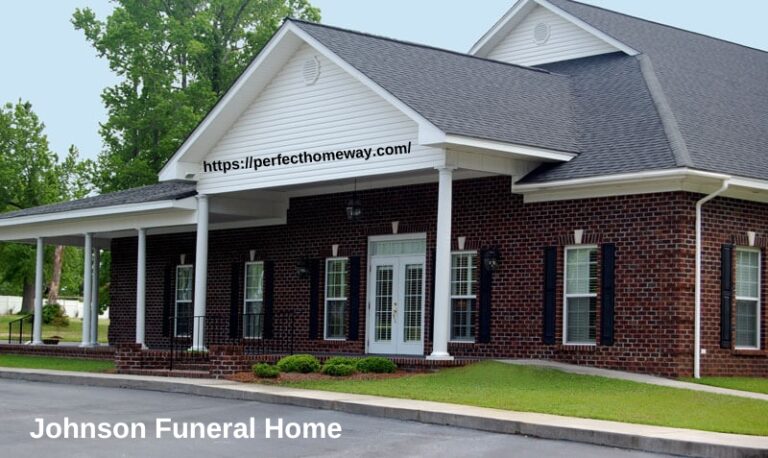Vessel Home: The Future of Sustainable Living

In recent years, the concept of sustainable living has become more important than ever, especially with the growing concerns about climate change and environmental degradation. People are actively seeking eco-friendly alternatives to traditional housing, and one such innovative solution that has gained popularity is the vessel home. This unique form of housing combines modern design with sustainable practices, offering an alternative to conventional homes. In this article, we will explore what vessel homes are, their benefits, and how they contribute to a greener and more sustainable lifestyle.
What is a Vessel Home?
A vessel home is a type of living space inspired by the design of ships or boats. These homes are typically built from converted shipping containers, boat hulls, or other marine structures. They are designed to be compact, highly efficient, and environmentally friendly. Vessel homes are often associated with minimalism, as they make use of limited space while maximizing functionality.
While the concept of using shipping containers for housing has been around for a while, the term “vessel home” brings a new level of sophistication and design. These homes are not just about repurposing old containers—they are a vision of a more sustainable future, blending modern architecture with recycled materials. The design focuses on creating a functional and eco-friendly living space without compromising on comfort or style.
The Evolution of Vessel Homes
The idea of living in alternative, sustainable housing isn’t new. However, the vessel home is a relatively recent innovation that incorporates advanced design techniques and green building practices. The use of shipping containers as homes began gaining popularity in the early 2000s, but vessel homes take it a step further by incorporating materials and design elements from the marine industry, such as boat hulls and recycled steel.
The evolution of these homes has also been influenced by the increasing demand for sustainable and affordable housing. As cities become more crowded and real estate prices rise, people are seeking more creative solutions for affordable living. Vessel homes provide an answer to this demand by offering an option that is both cost-effective and environmentally friendly.
Benefits of Vessel Homes
1. Sustainability
One of the most significant benefits of a vessel home is its contribution to sustainability. By using repurposed shipping containers, boat hulls, or other marine vessels, vessel homes reduce the need for new construction materials, which in turn minimizes the environmental impact of building a traditional home. This approach helps conserve natural resources, reduce waste, and lower carbon emissions associated with the manufacturing of new materials.
Additionally, vessel homes are often built with energy-efficient features such as solar panels, rainwater harvesting systems, and advanced insulation techniques. These features not only reduce the environmental impact of the home but also make the living space more energy-efficient and affordable in the long run.
2. Cost-Effectiveness
Vessel homes are generally more affordable than traditional homes. The primary reason for this is that the materials used to build vessel homes, such as shipping containers or recycled boat hulls, are often much cheaper than conventional construction materials. Additionally, the compact size of these homes reduces the overall cost of construction and maintenance.
For individuals or families looking for affordable housing, vessel homes offer a cost-effective alternative that doesn’t sacrifice quality or comfort. Many vessel homes are also designed to be modular, allowing for easy expansion or customization as the homeowner’s needs change over time.
3. Mobility and Flexibility
One of the unique advantages of vessel homes is their mobility. Because they are often built using modular containers or boat hulls, they can be easily transported to different locations. This makes them an excellent choice for people who value mobility and flexibility in their living situation. Whether you want to live on the beach, in the mountains, or in a remote location, a vessel home can be relocated to suit your preferences.
This mobility also allows for greater flexibility when it comes to the layout and design of the home. Homeowners can modify and customize their vessel homes according to their needs and desires, creating a personalized space that suits their lifestyle.
4. Minimalistic Living
Vessel homes are often designed with a minimalist approach, focusing on maximizing the use of space and minimizing excess. This minimalist design can lead to a more organized, clutter-free lifestyle, which many people find appealing. The small footprint of a vessel home encourages homeowners to prioritize the essentials and embrace a simpler way of living.
Living in a vessel home can also encourage a more sustainable lifestyle, as it requires homeowners to be more conscious of their consumption habits. This can lead to a reduction in waste, energy use, and overall environmental impact, making vessel homes an ideal choice for those committed to sustainable living.
How Vessel Homes Contribute to Eco-Friendly Living
1. Energy Efficiency
Vessel homes are often built with energy efficiency in mind. They can be equipped with solar panels, wind turbines, and rainwater harvesting systems, all of which help reduce the home’s reliance on traditional energy sources. By using renewable energy sources, vessel homes contribute to a reduction in greenhouse gas emissions and a decrease in the homeowner’s carbon footprint.
Moreover, many vessel homes use high-quality insulation to ensure that they remain warm in the winter and cool in the summer. This helps reduce the need for heating and cooling systems, further decreasing energy consumption and the home’s overall environmental impact.
2. Water Conservation
Water conservation is another key feature of many vessel homes. By incorporating rainwater harvesting systems, these homes can collect and store rainwater for use in irrigation, cleaning, and even drinking. This reduces the strain on local water supplies and minimizes the environmental impact of water usage.
Additionally, many vessel homes use water-saving appliances, such as low-flow toilets and energy-efficient dishwashers and washing machines. These features help conserve water and reduce the home’s overall environmental footprint.
3. Waste Reduction
Vessel homes are often designed with sustainability in mind, and as a result, they incorporate features that reduce waste. For example, by using repurposed materials like shipping containers and boat hulls, vessel homes help divert waste from landfills and give new life to materials that would otherwise go to waste.
Many vessel homes also incorporate composting toilets and waste management systems, which help reduce the amount of waste that ends up in landfills. This reduces the environmental impact of the home and promotes a more sustainable way of living.
Challenges of Vessel Homes
While vessel homes offer many benefits, they are not without their challenges. One of the primary challenges is the lack of widespread regulations for alternative housing. Many cities and municipalities do not have specific building codes or zoning laws that accommodate vessel homes, which can make it difficult for homeowners to obtain permits or approvals for construction.
Additionally, the compact size of vessel homes may not be suitable for everyone. For larger families or individuals who require more space, a vessel home may not provide the necessary accommodations. However, many vessel home designs are modular, meaning that homeowners can add additional units to create more living space if needed.
Conclusion
The vessel home is a revolutionary concept that combines sustainability, affordability, and innovative design. By repurposing shipping containers, boat hulls, and other marine vessels, these homes provide an eco-friendly alternative to traditional housing. With benefits such as energy efficiency, cost-effectiveness, and mobility, vessel homes offer a promising solution for those seeking a more sustainable and affordable lifestyle.
While there are challenges to building and living in a vessel home, the benefits far outweigh the drawbacks. As more people embrace sustainable living and seek alternative housing solutions, vessel homes are likely to become an increasingly popular choice. By contributing to a greener and more eco-friendly future, vessel homes represent the next step in the evolution of sustainable living.
Whether you’re drawn to the minimalist lifestyle or seeking a more sustainable way of living, a vessel home could be the perfect solution for you. It’s time to rethink the way we live and embrace the future of housing—compact, sustainable, and innovative.






